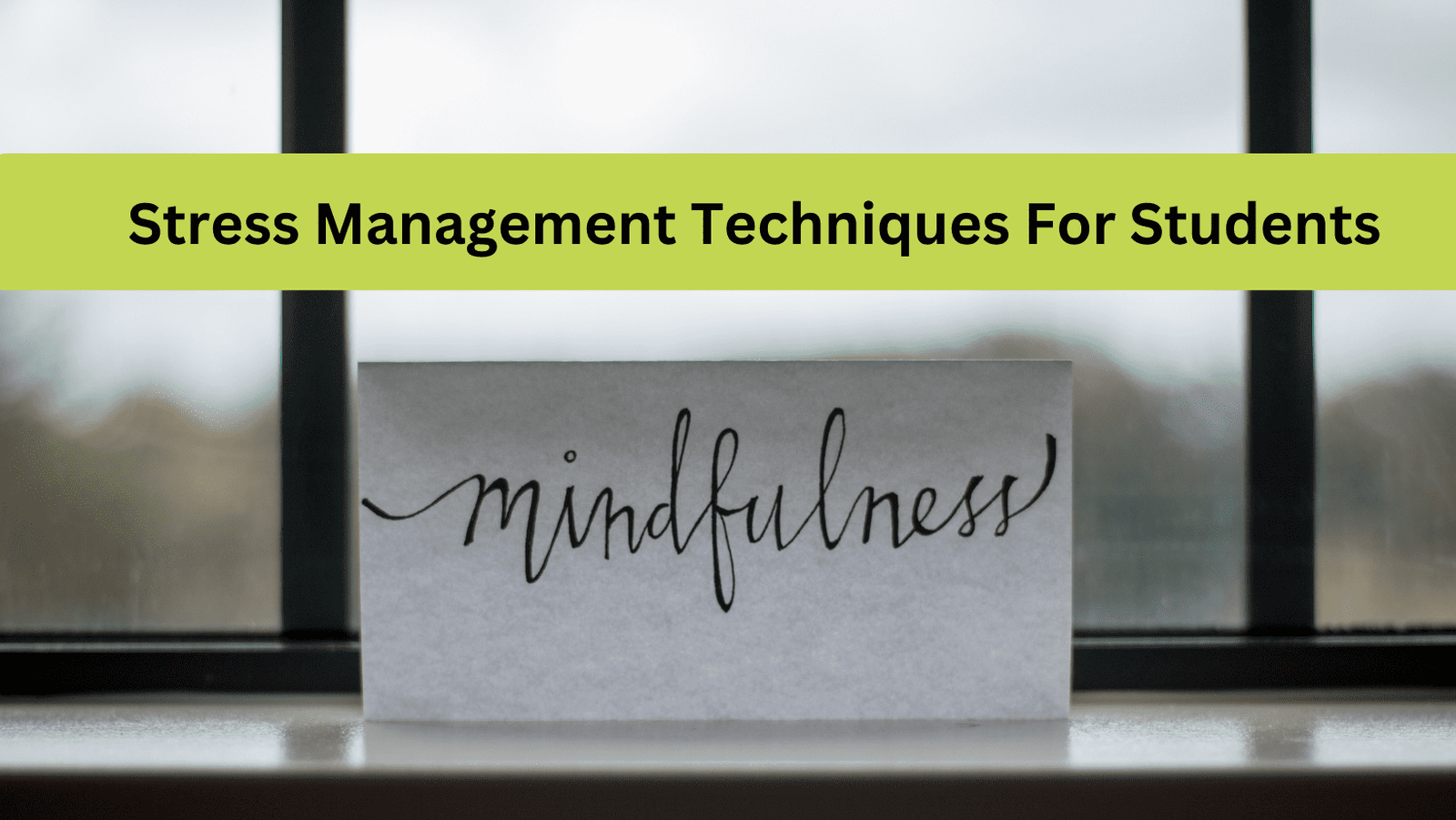Stress is a common experience for students, but there are several effective strategies to help reduce it and improve overall well-being. Here are some ways students can reduce the stress of studies:
Time Management: Effective time management is key to reducing stress. Create a study schedule or use a planner to allocate specific time slots for studying, leisure, and relaxation.
Follow the time management matrix

Set Realistic Goals: Set achievable goals for your studies. Break larger tasks into smaller, manageable goals to avoid feeling overwhelmed.
Prioritize Tasks: Identify the most important and urgent tasks, and focus on completing those first. This can help you avoid last-minute cramming and reduce stress associated with deadlines.
| High priority | Time required | ||
| Less high priority | Time required | ||
| Low priority | Time required |
Create a Productive Study Environment: Find a quiet, comfortable, and well-lit place to study. Remove distractions such as your phone or social media during study sessions.
Practice Mindfulness: Incorporate mindfulness techniques, such as meditation or deep breathing exercises, into your daily routine to reduce anxiety and improve concentration.
Exercise Regularly: Physical activity can help reduce stress and improve overall well-being. Even a short daily walk can make a significant difference.
Healthy Diet: Eat a balanced diet rich in fruits, vegetables, whole grains, and lean proteins. Proper nutrition can positively impact your energy levels and ability to concentrate.
Adequate Sleep: Ensure you get enough sleep each night. Aim for 7-9 hours of quality sleep to support cognitive function and emotional well-being.
Stay Organized: Keep your study materials, notes, and assignments well-organized. This will help you find what you need quickly and reduce the stress associated with clutter.
Seek Support: Don’t hesitate to ask for help or support from teachers, classmates, or a counselor if you’re struggling with your studies or feeling overwhelmed.
Take Breaks: Avoid long, uninterrupted study sessions. Take short breaks to rest and recharge. The Pomodoro Technique is a popular approach.
How does the technique work?
- Select a task
- Set your timer after 25 minutes. Work with complete focus during this time
- Take a break of 5 minutes after the timer alerts you
- Repeat this cycle for 1-4 times
- After 4 times, take a longer break of 20-30 minutes
Practice Self-Care: Engage in activities you enjoy outside of studying, such as hobbies, sports, or spending time with friends and family. Taking time for yourself is crucial for reducing stress.
Set Realistic Expectations: Be kind to yourself and understand that it’s okay not to be perfect. Avoid comparing yourself to others, as this can lead to unnecessary stress.
Stay Hydrated: Drink enough water throughout the day to stay hydrated, as dehydration can negatively affect your concentration and cognitive function.
Time Off: Plan regular breaks and time off from studying. This can include weekends or days when you don’t study at all to recharge and relax.
Consider Professional Help: If stress becomes overwhelming and persistent, consider seeking help from a mental health professional who can provide guidance and support.
Study Groups: Join or form study groups with classmates. Collaborative learning can make studying more enjoyable and less stressful, as you can share insights and help each other understand difficult concepts.
Use Technology Wisely: While technology can be a valuable tool for learning, it can also be a source of distraction. Use apps and tools designed for productivity and consider using website blockers to limit access to distracting websites during study sessions.
Practice Test-Taking Strategies: If you get anxious during exams, practice test-taking strategies such as time management, positive self-talk, and relaxation techniques to reduce anxiety and improve performance.
Stay Positive: Maintain a positive mindset by focusing on your achievements and progress, no matter how small they may seem. Celebrate your successes, and don’t dwell on setbacks.
Stay Informed: Understand your course requirements and expectations early on. Knowing what’s expected of you can help reduce uncertainty and stress.
Stay Flexible: Sometimes unexpected events or changes in plans can cause stress. Develop adaptability and problem-solving skills to handle such situations with ease.
Take Advantage of Academic Resources: Many universities offer academic support services such as tutoring, writing centers, and academic advisors. Don’t hesitate to seek help when needed.
Practice Effective Study Techniques: Learn and apply effective study techniques like active recall, spaced repetition, and summarization to maximize the efficiency of your study sessions.

Reflect and Adjust: Periodically assess your study habits and stress levels. If you notice something isn’t working, be willing to adjust your strategies and routines accordingly.
Stay Social: Maintain a social life and spend time with friends and family. Social connections can provide emotional support and a healthy balance to academic pressures.
Limit Perfectionism: Striving for excellence is admirable, but perfectionism can be a major source of stress. Learn to accept that it’s okay to make mistakes and that continuous improvement is more important than being perfect.
Engage in Relaxation Techniques: Explore various relaxation techniques like progressive muscle relaxation, visualization, or journaling to help you unwind and manage stress.
Practice Gratitude: Take a moment each day to reflect on the things you’re grateful for. Cultivating a sense of gratitude can improve your overall outlook and reduce stress.
Stay Informed About Mental Health: Educate yourself about mental health and be aware of the signs of excessive stress or anxiety. Knowing when to seek help is an important part of stress management.
Remember that stress is a natural part of student life, but it should not become overwhelming or detrimental to your well-being. Finding a balance between academic responsibilities and self-care is crucial for long-term success and happiness.







